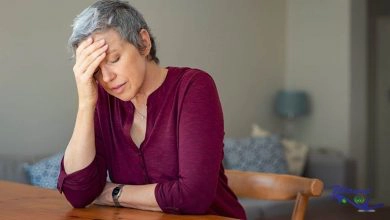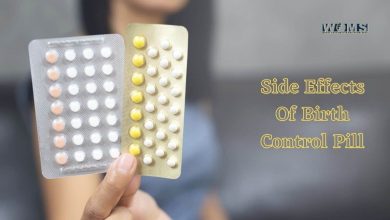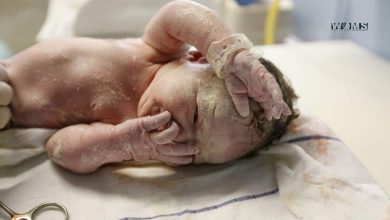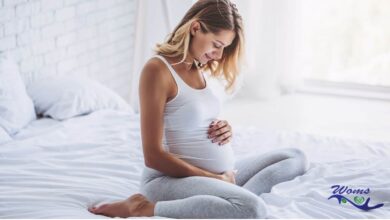Period Pain and Their Problem

Introduction
Menstruation or period is defined as the periodic shedding of blood, damaged tissue of endometrium and unfertilized ovum per vagina. Many women have painful periods, also called dysmenorrhea. The period pain is most often menstrual cramps, which are throbbing, cramping pain in your lower abdomen. Period pains are also known as Dysmenorhhea, menstrual pain or menstrual cramps.
The menstrual cycle is the regular natural changes that occur in a female that makes the pregnancy possible. This cycle is required for the production of oocytes and for the preparation of the uterus for the pregnancy. This process is possible due to the rise and fall of hormones. This process is seen in every normal human and the first period is seen at the age of 12 years but sometimes it is also observed in 10 to 15 yrs of age group. But every female’s body has its own schedule. There is no right age for girls to get period.
What is menstrual cycle pain?
Menstrual cycle pain is also known as DYSMENORRHEA or PERIOD PAIN. This range from fulland analysing to severe and extreme.
The menstrual cycle is considered as a great necessity evil in human. Though it’s a very necessary process there are a lot of problems and pains that a female should go through . One of the common problem seen is Menstrual cramps and Amenorrhea. Menstrual Cramp is tended to begin after Ovulation when an egg is released from the ovaries and travels down the fallopian tube .
This pain is felt in the lower abdomen before and during the cycle process. While Amenorrhea is loss of cycle.
What are the causes of painful periods?
There are two types of dysmenorrhea: primary and secondary. Each type has different causes.
Primary dysmenorrhea is the most bourgeois kind of period pain. It is period pain that is not caused by another situation. The cause is usually having too many prostaglandins, which are chemicals that your uterus make. These chemicals make the muscles of your uterus tighten and relax, and this causes the cramps or period pain.
The period of pain can start a day or two before your period. It normally lasts for a few days, though in some women it can last longer.
You usually first start having period pain when you are adolescent, just after you begin getting periods. Often, as you get older, you have less pain. The pain may also get better after you have given birth.
Secondary dysmenorrhea often starts later in life. It is caused by conditions that affect your uterus or other reproductive organs, such as endometriosis and uterine fibroids. This kind of pain often gets bad over time. It may begin before your period begins, and continue after your period ends.
Causes of menstrual irregularities
Irregularities of the menstrual cycle have different causes
Pregnancy and breast feeding
A missed period is seen in pregnancy and also typically delays the return of menstrual after pregnancy.
Eating disorder and weightless
Preferring more oily food and street food and weight loss can also disrupt the menstrual cycle.
premature ovarian failure
This term refers to the loss of normal ovarian functional before age of 40. And this may also disrupt the cycle.
Pelvic Inflammatory Disease (PID)
The infection in Reproductive organs can cause irregular menstrual cycle
Menstrual cramping
Menstrual cramping is a very painful sensation that affects many females before and after the cycle.
This pain is felt due to muscular tightening and relaxing of the uterus so that the blood can come out of uterus.
This pain is very sensed and felt in the stomach and lower back.
Amenorrhea
This refers to the absence of a menstrual cycle at least for 90 days.
Abnormal Uterine Bleeding
This is a condition in which female have abnormal bleeding then the normal bleeding felt during the menstrual period. This might also include bleeding between periods or sex.
In early pregnancy, some females experience implantation bleeding, as a result of embryonic attachment to the uterine wall.
There are some of the effects seen when the victim is going through the problem.
- Bloating
- Headaches
- Constipation
- nausea and vomiting
- Faintness and dizziness
- Hairfall
Medication
Over the counter of medication is available to treat most cases of menstrual cramp
- Anti-prostaglandins reduces cramping of the uterus and relieves discomfort.
- The Medications may also contain pain killers like ibuprofen and Naproxen drugs.
A good candidate, a physician may prescribe hormonal birth control pills to prevent ovulation and reducing the severity and menstrual cramps.
Home remedies for period pain
Some of the home remedies that can be followed to prevent period pain are
- soaking a hot bath.
- applying heat using hot water bags to lower abdomen
- transcutaneous electrical nerve stimulation (TENS)
- it is not preferred to sleep with a heated pad as it could burn before purchasing a TENS unit.
Researchers at Imperial College London found that ingredients in Chamomile tea may help to relieve menstrual pain by relaxing the uterus.
Some dietary options like Herbal and Vitamins supplement may help to reduces this problem.
Doing regular exercise and reducing stress also reduces pain.
Besides this, all things there are some of the medical condition that may worsen a Menstrual Pain are:-
Endometriosis
This is the problem related to the tissue that lines the inner uterus develops outside the uterus.
Uterine fibroids
This is the growth of non-cancerous tumours and cell in the wall of the uterus.
Pelvic inflammation disease (PID)
This is a sexually transmitted infection caused by bacteria.




